A widening gap between Clinton and Obama
- Published
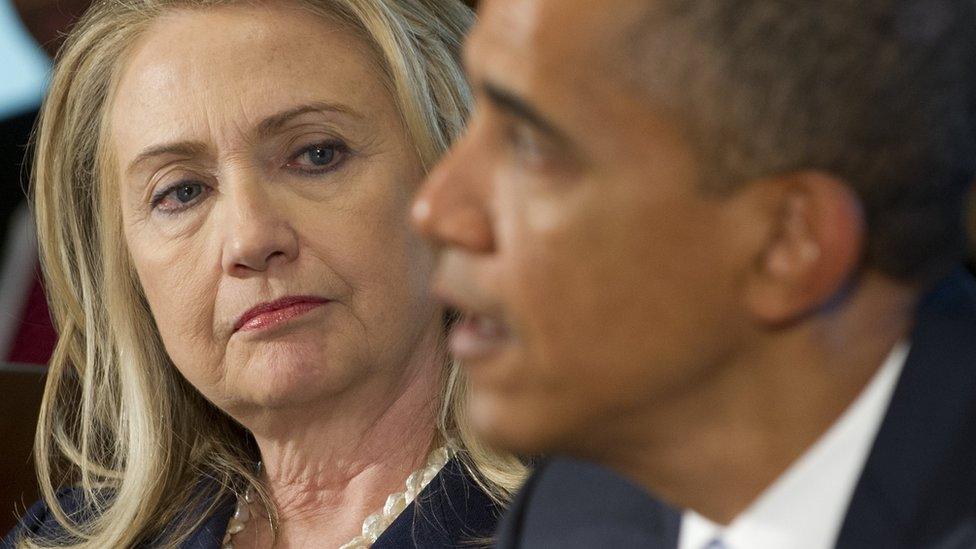
As Democratic presidential hopefuls prepare to face off in their first debate, front-runner Hillary Clinton is increasingly trying to contrast herself with a man who won't be on the stage on Tuesday night - President Barack Obama.
In areas like foreign policy, immigration and the environment, the woman who was once part of Mr Obama's "team of rivals, external" as secretary of state is now marching to the beat of her own drum.
Mrs Clinton's alliance with Mr Obama, her 2008 Democratic primary nemesis, was always a bit of a marriage of convenience. She played the loyal soldier in his administration and both she and her husband campaigned for his re-election in 2012, but her own presidential ambitions were never diminished.
The political reality is that Mrs Clinton now has a nomination to secure and a presidency to win - a difficult task for a party seeking a third White House victory in a row. It's only happened once in the last 60 years, when George HW Bush followed two terms of Ronald Reagan in 1988.
"I am not running for my husband's third term or President Obama's third term," Mrs Clinton has repeatedly said while on the stump. "I'm running for my first term."
Here's a look at some of the differences Mrs Clinton has drawn between herself and the sitting president and her key quotes on the issues.

Keystone XL Pipeline
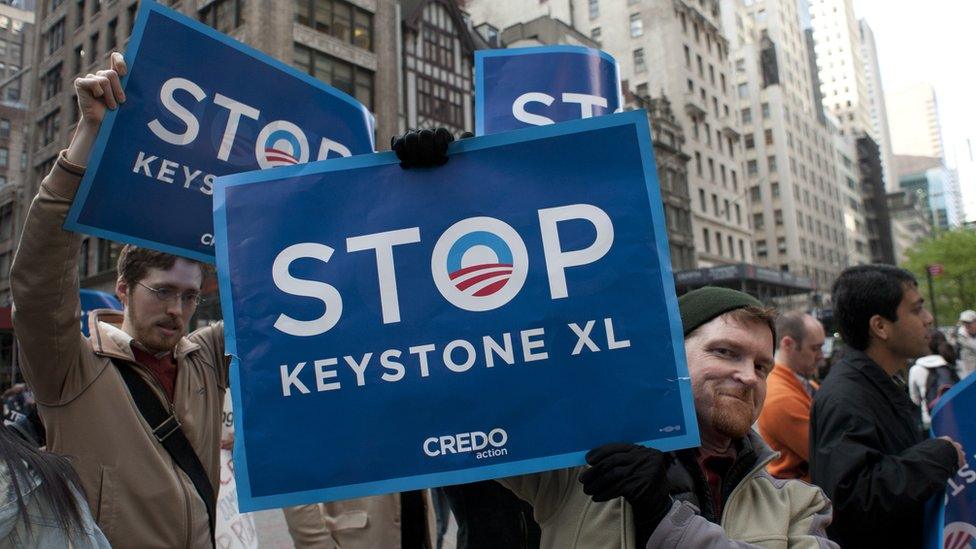
"I don't think it's in the best interest to combat climate change."
As secretary of state from 2009 to 2013, Hillary Clinton was in charge of reviewing the application to build the Keystone XL pipeline from Canada to the US Gulf coast. The proposal was repeatedly delayed, however, both while she was in the administration and after she left.
After declining to take a position on the project for months as a candidate, in late September Mrs Clinton finally came out against it, saying it was a "distraction to the important work we have to do on climate change".
The Obama administration seems determined to put off the decision for as long as possible - perhaps waiting to see if a left-leaning Canadian government elected next week ends up scrapping the project and rendering the whole issue moot.

Syria
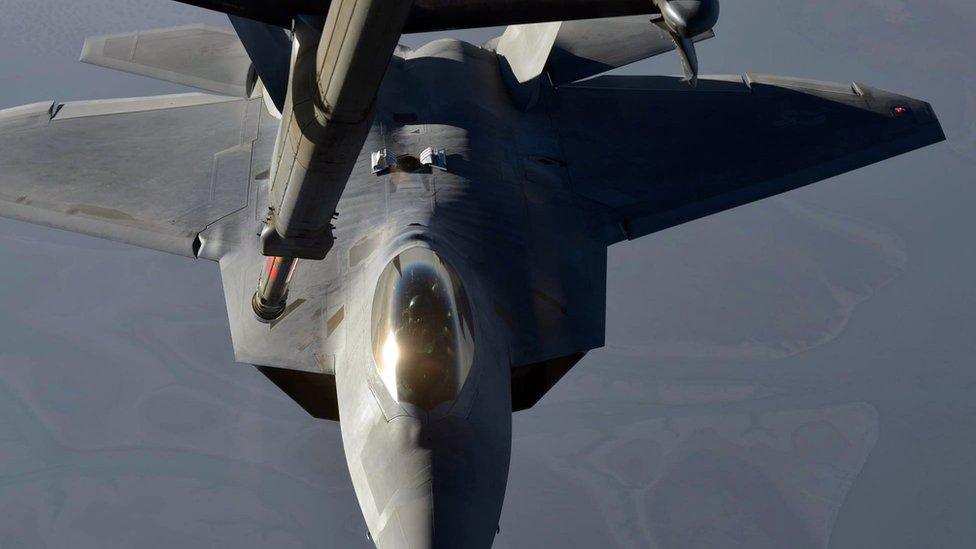
"I personally would be advocating now for a no-fly zone and humanitarian corridors to try to stop the carnage on the ground and from the air."
Mr Obama has been roundly criticised by Republican presidential hopefuls for declining to declare a no-fly zone for military aircraft over Syrian combat zones. On 1 October Mrs Clinton added her voice, external to the chorus.
She's also called, external for the US to admit 65,000 refugees from Syria - while her successor at the State Department, John Kerry, has said the US will process 10,000 over the next year.
The former secretary of state has always been more of a foreign policy hawk than Mr Obama - both while working within the administration and on the 2008 campaign trail, where her early support for the Iraq War was a key point of difference between the two candidates.

Immigration
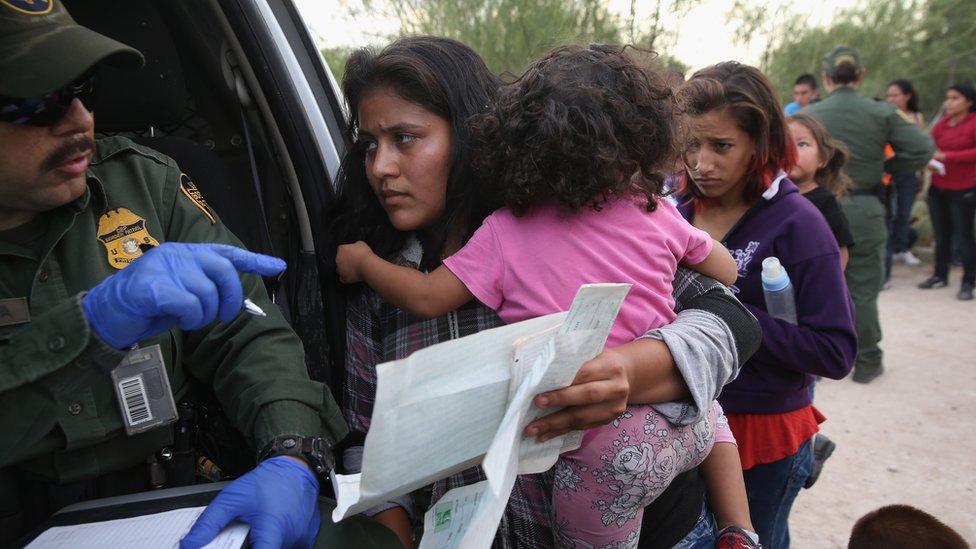
"I'm not going to be breaking up families."
On immigration, Mrs Clinton has criticised the Obama administration's deportation policy as being "harsh and aggressive". She has said that she understood that the Democrat had to prove he was tough on enforcement in order to make a comprehensive deal with Republicans more achievable, but that she was going to chart a different path.
She said it's clear at this point that the "current crop" of Republicans in Congress "are just not acting in good faith".
In May candidate Clinton gave one of her first major policy speeches on the immigration issue, where she won praise from Hispanic groups for her call for a "full and equal path to citizenship" for undocumented immigrants.

Trans-Pacific Partnership
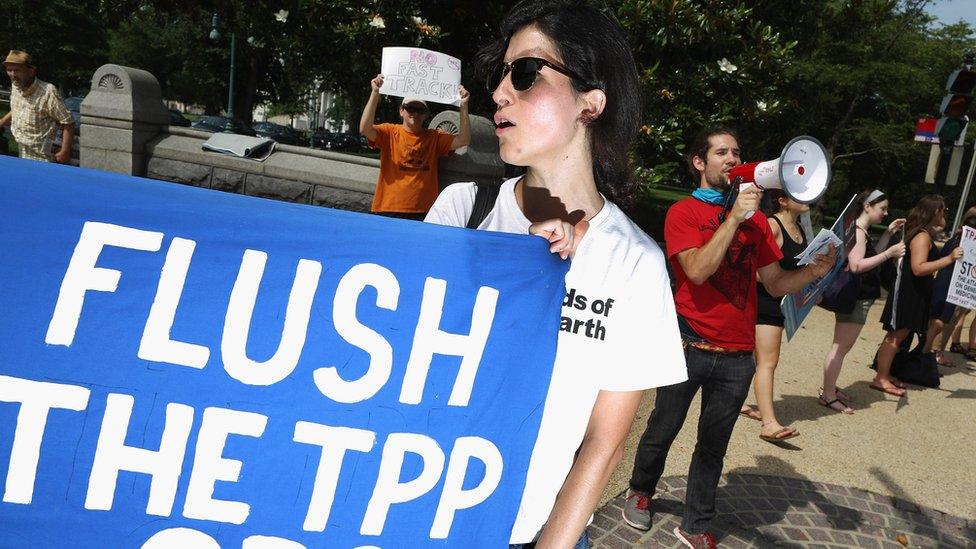
"The bar here is very high and, based on what I have seen, I don't believe this agreement has met it."
While Mrs Clinton's other breaks with her former boss can be written off as differences of tactics and not substantive policy, her opposition to the Trans-Pacific Partnership multi-nation trade agreement has teeth.
Siding against the administration on TPP, Mrs Clinton will give cover for more rank-and-file Democrats to come out against the agreement and likely make it more difficult for Mr Obama to get one of his last signature foreign policy goals through Congress.
The move is also noteworthy because of Mrs Clinton's past support not just for free trade deals in general, but for TPP in particular - once calling it the "gold standard" of trade agreements.

Mr Obama's response
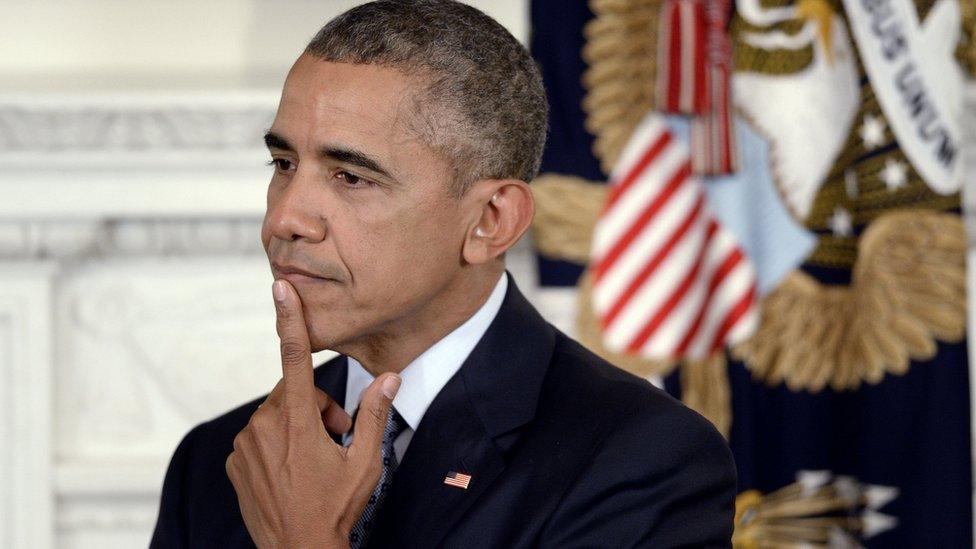
Mrs Clinton's recent moves have had pundits and analysts carefully watching Mr Obama for any indication of push-back or anger.
Her campaign is reportedly keeping the president's staff advised of positions she takes that are counter to his official policy, but at some point such considerations may not be sufficient.
In a 60 Minutes interview on Sunday night, Mr Obama only spoke of Mrs Clinton while downplaying the impact of the ongoing investigation into her use of a private email server as secretary of state.
He called it a mistake and said that she "could have handled the original decision better".
By contrast he effusively praised Vice-President Joe Biden, who is contemplating a White House bid of his own.
"I think Joe will go down as one of the finest vice-presidents in history, and one of the more consequential," he said. "I think he has done great work."
The mere spectre of Mr Biden's candidacy has put Mrs Clinton in a delicate position.
She's walking a fine line between embracing Mr Obama, who is still overwhelmingly popular among Democrats - particularly the young and minority voters who were essential to his re-election in 2012 - and avoiding a situation where establishment Democrats are divided between her and Mr Biden, while insurgent candidate Bernie Sanders has the populist left to himself.
Mrs Clinton is still the front-runner for the Democratic presidential nomination in national polls, but the current dynamics of the Democratic presidential campaign will put her political skills to the test.